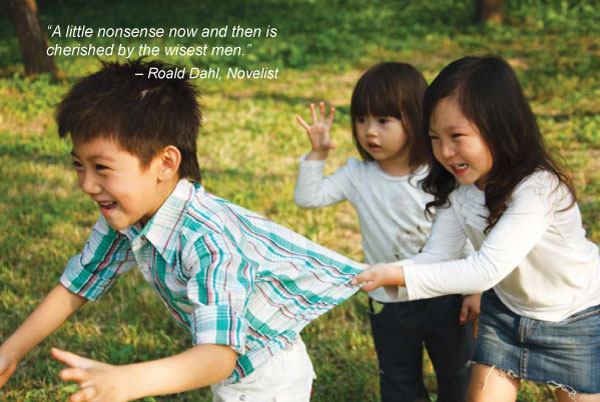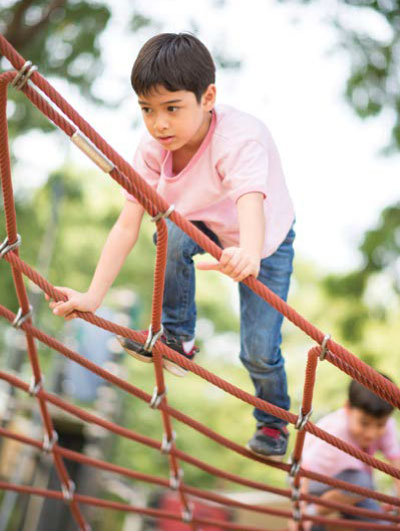‘Play’, simply put, is a spontaneous activity that children do to amuse and occupy their time. Play helps children develop socially, emotionally, physically as well as train and enhance their cognitive abilities.
The nature of play offers children a chance to control unpredictable events by employing certain skills such as creativity, problem solving, negotiation, cooperation, etc. There are two categories of play:
Structured play involves following a set of rules and seeking the most efficient way to achieve pre-existing objectives.
- Card games
- Board games
- Puzzles
- Sports – football, badminton, etc.
- Assembling toys (e.g. Lego, model airplanes, etc.)
Unstructured play is open-ended playtime that has no specific structure, or learning objective ‘ your child determines or creates his/her own objective.
- Playing with blocks
- Colouring, drawing or painting whatever it is they want
- Running around at the playground/park
- Pretend play
- Inventing totally new games
Play is not as simple as it may seem and much more important to your child’s development than you might have thought. Unstructured play, for example, gives your child the 3A benefits:
Attention
Being more physically active through play helps regulate blood circulation to vital organs including the brain and thus, improve cognitive focus. Outdoor unstructured play gives your child more opportunities to encounter unique challenges and problems, which they can solve through critical and creative thinking. The world is constantly changing and through unstructured play, they are able to develop some of these adaptive skills.
Affiliation
During play, children train their social & emotional skills by interacting with their peers. It is also a great chance to teach them social intelligence such as empathy, sympathy, cooperation, sharing and self-awareness – skills they will later need to become good adults.
Affect
Play can potentially improve the mood and mental health of children, especially pre-schoolers. It also protects children against the effects of pressure and stress, allowing them to move at their own pace, discover their interests, and ultimately pursue their passion.
Additionally, children who adopt healthy lifestyle habits are more likely to carry forward their practices into adulthood, making them less likely to acquire chronic diseases such as heart problems or diabetes.
Don’t know when or how to have unstructured play? Don’t worry, start off with these, and over time you will develop your own ideas naturally:
- Car games (e.g., ‘I Spy’ and other games involving license plates, signs, and colours of cars).
- Cook and bake together. Things can get a little messy but it provides lots of opportunities for bonding and learning.
- Play games while grocery shopping (e.g. matching games, make up ingredients for creative recipes, and give children picture lists to do their own shopping)
- Housework can be fun too or just let them play around you.
Here are some tips on how you can incorporate unstructured play:
- Combine playtime with exercise.
- Limit the amount of screen time that all of you are exposed to.
- Let go of the leash a little. Children should be allowed to climb trees, play with dirt and splash around in a puddle once in a while. The important thing is to monitor them and interfere only if someone is about to get hurt.
- Have play dates but rotate houses with your friends to make it interesting. This also helps everyone share the load and get some much needed time off.
Find a balance between structured and unstructured play. Some people think that leaving your child to their own devices is a sign of parental neglect. That is not true at all. There are many benefits of unstructured play and parents who allow more time for it are being just as supportive, nurturing and productive as any other parent. Let your kid play and have fun – it’s what they do best.
An educational contribution by Malaysian Paediatric Association.







Comments